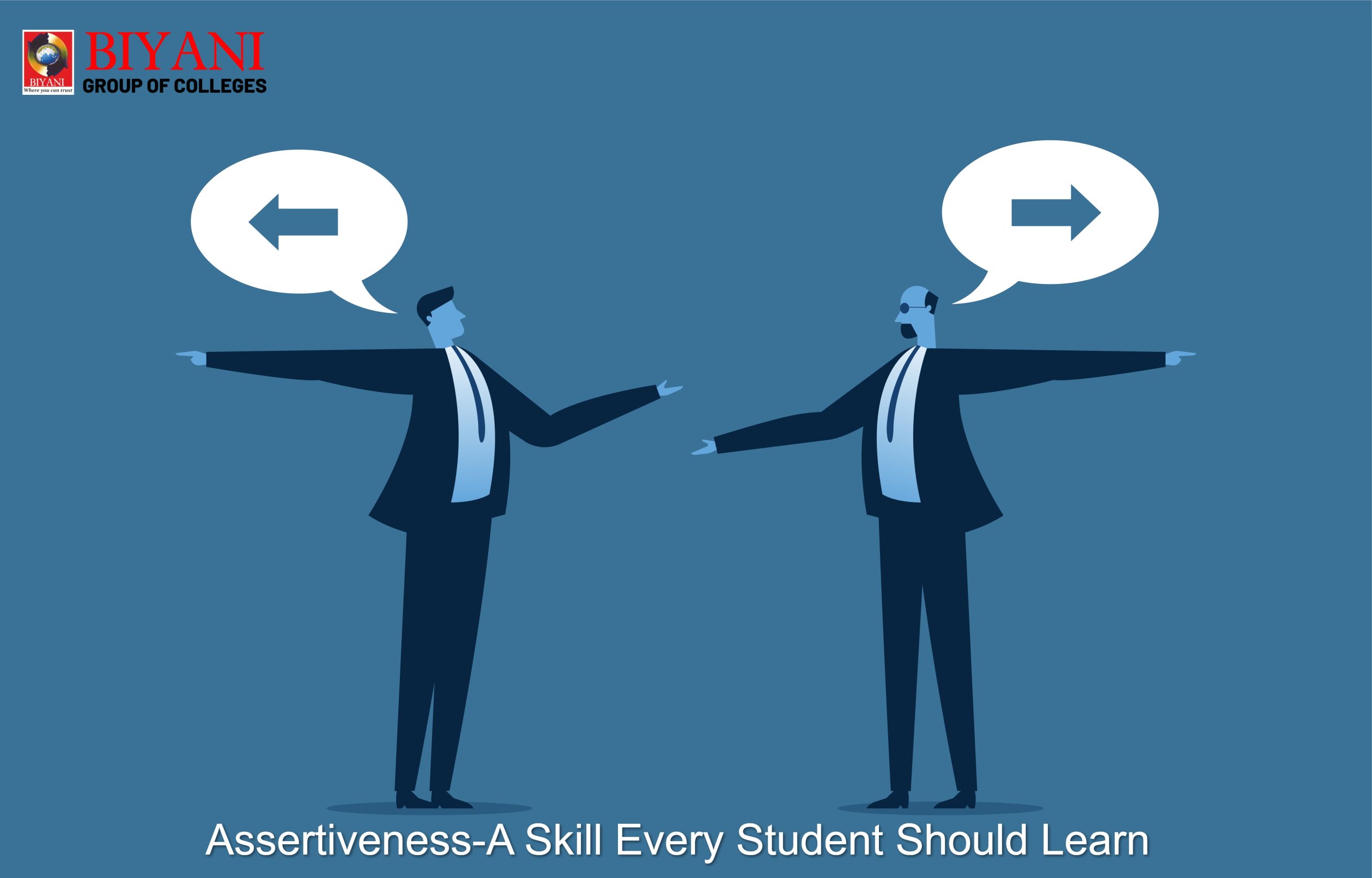In such a fast and competitive college life, one is very often faced with the dilemma of meeting others’ expectations, maintaining relationships, and handling one’s emotions. Many times, they say yes to what they do not want to do, suppress opinions so as not to disagree or keep silent when they feel uncomfortable. Though these may bring about temporary peace, more often than not, such compromise breeds frustration, burnout, and erosion of self-respect. This is where assertiveness becomes an important life skill.
Stepping into college—it’s utterly overwhelming. Deadlines loom, you’ve got this intense peer pressure thing, figuring out your social scene, and the whole “what am I going to do with my life?” career panic all hit you at once. That stuff really tests your confidence, you know? It throws off your emotional equilibrium. Honestly, in times like these, learning to be assertive isn’t just a nice skill—it becomes the absolute necessary ingredient for keeping your head straight and ensuring decent mental well-being.
If you’re looking to build a balanced and confident personality, check out BA College in Jaipur that promotes personal development alongside academics.
Understanding Assertiveness
Assertiveness can be defined as a process by which persons state their feelings, needs, and opinions clearly and confidently while showing respect towards others. It falls between passiveness and aggression. The passive person does not want any conflict and gives in to demands just for peace to be maintained. The aggressive person forces his or her perspective to dominate by overriding or disregarding others. Assertive individuals balance both ends—they manage to stand up for their rights without disrespecting others. Being assertive doesn’t mean being pushy or quarrelsome; rather, it means knowing your rights and knowing how to express those rights clearly and respectfully. It’s a form of self-respect combined with empathy.Why Assertiveness Matters
- Avoids Burnout: Students who cannot say “no” commit to more than they can handle—group projects, social commitments, even emotional labor for friends. Assertiveness helps them set healthy boundaries and prioritize things without guilt.
- Improved Communication: It leads to forthright and effective communication—from solving doubts with professors to resolving roommate conflicts and giving feedback during group work.
- Self-Esteem is Promoted: With every act of being straightforward, students build confidence and emotional resilience.
- Anxiety Reduction: Bottling up opinions or avoiding disagreement creates internal pressure. Assertive communication releases that by allowing genuine expression.
Read Also
-
How Students Can Become More Assertive
- Know Your Rights: Know your right to say what you think, even if others do not agree; to say no without guilt; to ask for help; and to make mistakes. Unfortunately, college teaches many academic lessons but rarely much about personal rights—so essential for mental health.
- Use “I” Statements: Instead of blaming or accusing, state your perspective. For example, instead of saying “You never listen,” say “I feel unheard when my opinions are interrupted.” This minimizes defensiveness and fosters constructive dialogue.
- Learn to Say “No”: It’s not selfish—it’s self-care. You don’t have to attend every event or agree to every favor. A simple, polite “I appreciate the offer, but I just can’t commit right now” works perfectly.
- Practice Active Listening: Assertiveness is also about listening. By understanding others’ perspectives, you show respect and earn trust, which makes your own opinions heard too.
- Maintain Confident Body Language: Eye contact, posture, and a strong yet calm tone reflect confidence. Avoid crossed arms, downward gaze, or an overly soft tone—these can signal hesitation.
- Start Small: If assertiveness feels uncomfortable, begin with low-pressure situations. Speak up in a class discussion, ask a question after a lecture, or express a preference during group work. Confidence grows with practice.
Overcoming the Fear of Being Judged
Most students hesitate to be assertive because they fear rejection or being labeled “difficult.” It’s vital to remember that assertiveness is not about controlling outcomes—it’s about honesty. Not everyone will agree with you, but respectful expression earns genuine respect over time. Moreover, assertiveness prevents emotional exhaustion caused by pretending to agree or hiding discomfort.Conclusion
Assertiveness is not inborn—it’s a skill developed through self-awareness and consistent practice. For students navigating the challenges of higher education, this discipline fosters empowerment, honest communication, and emotional balance. It strengthens confidence, helps establish boundaries, and encourages genuine connections. Ultimately, assertiveness provides a powerful blend of self-expression and empathy—key ingredients for a mentally healthy and fulfilling life. If you’re seeking an empowering learning environment that helps students grow emotionally and intellectually, explore Girls College in Jaipur for holistic education and personal growth.Blog by:
Ms.Himanshi Wadhwani
Assistant Professor,Department of Social Science
Biyani Group Of Colleges


